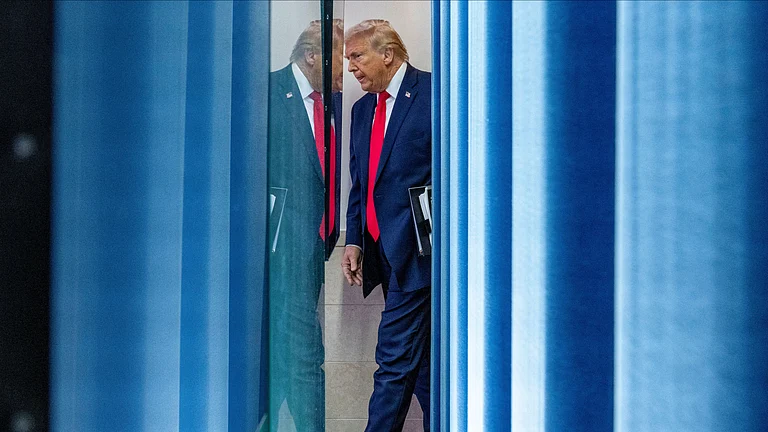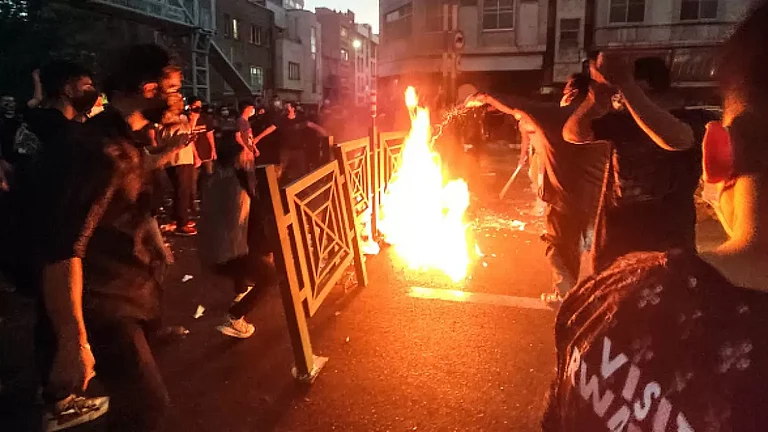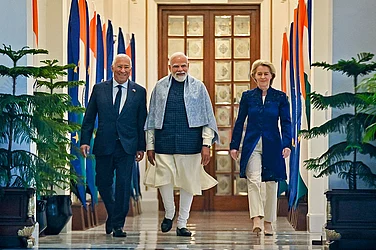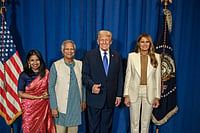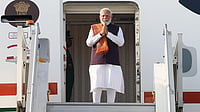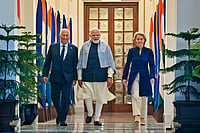Is the human race wired for war? The on-going wars and civil strife across the world lends weight to this dour view.
Human history is replete with tribes, communities, empires and nation states going to war. In the modern era, after the devastating effects of the two Great Wars, a concentrated effort was made by the international community to build a peaceful world where differences could be solved through negotiations and diplomacy. Yet, we refuse to learn. Fighting continues and governments spend millions on arms and ammunitions and on finding new ways to defeat the enemy--money that could have been better spent on public good. In wars, the only victors now are the arms manufacturers.
At the moment, from Europe to West Asia, Africa, Asia and Latin America full scale wars or armed conflicts are on.
In Europe there is Russia’s war in Ukraine; in the Middle East, Israel continues its relentless punishment of the people of Gaza since the October 7 attack by Hamas. It has now spread to Lebanon where Hezbollah leader Hassan Nasrullah and his top commanders have been eliminated by Israeli airstrikes. Ground assault by Israeli troops in Lebanon has started. Iran has also fired nearly 200 ballistic missiles at Israeli targets. Most of them have been intercepted by Israel and US. Israel has promised retaliation that threatens to envelope the region in a vortex of violence. With the US sending a 100-strong force into Israel to operate the new air defence system sent in by the Biden administration, chances of the US getting directly involved in the conflict is high.
The pager and walkie-talkie blasts in Lebanon added a new dimension to the war. The relentless bombing on suspected Hezbollah targets have killed a few commanders but many more civilians.
In Asia, in fact next door to India, there is civil war in Myanmar, where the military junta is fighting both ethnic groups and pro-democracy militia. The military government arrested Aung San Suu Kyi and other leaders of the National League for Democracy that had won the 2020 elections and were on their way to parliament to take the oath of office. When the military coup happened in February 2021, world leaders including Joe Biden who had just taken office in Washington, thundered that this was unacceptable. ASEAN, where Myanmar is a member state, was asked to broker a peace deal between the two sides--an unsuccessful attempt as fighting continues amid civil unrest.
In Africa, civil war has displaced millions of people in Sudan. Burkina Faso, Mali, and Niger, all under military rule, are fighting various armed Islamic groups inspired by Al Qaeda and the ISIS. Al-Shabaab, based in Somalia, often extends its operations into Kenya and Ethiopia. Other violent Islamic groups include Al Qaeda in the Islamic Maghreb (AQIM) and Jama’s Nusrat ul-Islam wa al-Muslimin (JNIM). Then there is Boko Haram in Nigeria. Altogether, there are some 35 armed conflicts on in Africa.
In Latin America, there is the never ending drug wars in Colombia and Mexico that has left hundreds of dead. In Venezuela the opposition leader had to flee the country and his supporters maintain that President Nicolas Maduro stole the elections. Across South America the tussle between the Left and the Right continues to dominate politics.
Across these wars and internal rifts, the most devastating effect has been on ordinary civilians. The disruption caused by the war in Ukraine has affected not just the region but the world supply of food grain, with the Global South bearing the brunt.
With the Houthi’s taking aim at cargo ships on some of the world's busiest shipping lanes, ships are having to take a more circuitous route to avoid the Red Sea.
In a collection of stories published alongside this, Outlook is looking at how the war and civil strife is affecting ordinary people across continents. This is an attempt to tell the people’s story and not just military matters.









